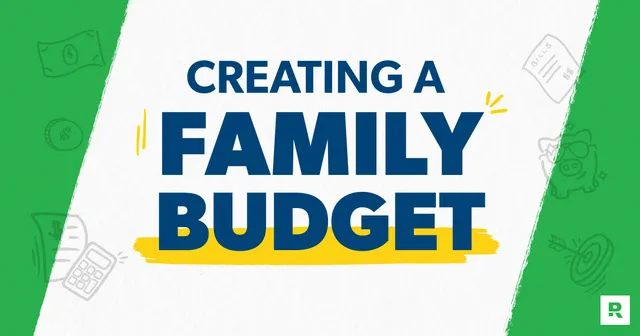
Creating a family budget is the first step to managing your household finances. But budgeting can seem like a lot—especially when you’ve got kids. You’re busy, your money’s tight, and money talks are sometimes super awkward.
Hear this: You can create a successful family budget no matter your time, income or past. We’ve been teaching people how to do it for over 30 years and have seen it work again and again and again. Here are some of our best tips on how to make a family budget work for you.
Everyone would like more money in the bank at the end of the month. The good news is that it’s never too late to start saving and investing. Here are some tips to help you grow your wealth by creating a budget.
What Is a Family Budget?
A family budget is a plan for your household’s money- everything that comes in (income) and goes out (expenses). That means you’re planning for all the giving, saving and spending each month- from groceries and rent to emergency savings and retirement.
- Save Money: Save money from your salary for contingencies. At least three months’ salary should be saved as a reserve for emergencies. Even if you can’t afford to save a lot of money each month, it’s important to put in a small amount regularly.
- Keep tracking your income and expenses: Every budget starts with knowing how much you’re earning and spending. Use a spreadsheet or online budgeting tool to record your income and expenses.
- Set goals for expenditure: By setting goals, you can make smarter budgeting choices and keep your spending on track. Make a list of what you’d like to achieve over the short, medium, and long terms and record how much you can allocate to them every month.
- Follow the finance rule 50:30:20: To differentiate between your “needs” and “desires,” put 50 percent of your income toward fixed expenses (“needs”), 30 percent toward variable expenses (“desires”), and the remaining 20 percent against your financial goals of saving.
- Keep track of your spending: Tracking your spending over time helps you understand the impact of impulse buying versus contributing to longer-term goals. Get in the habit of recording your daily expenses.
- Get every family member involved: A budget only works if every family member in your household commits to it. Make sure everyone understands what’s expected of them and hold regular meetings to review everyone’s spending.
- Know your credit score. Your credit score follows you for life and can dramatically affect your ability to borrow money, secure a mortgage, and qualify for a low-interest credit card. Scores of 750 and above are considered “Good”.
- Pay off bills: Banks, EMIs, credit cards, utilities, and Mobile all bill on a monthly cycle. Create calendar alerts and stick to them to avoid missing a payment and incurring interest charges.
- Adjust your budget when needed: Braces, bow ties and budgets. What do these three B-words have in common? They all need adjusting. Yes, you’re supposed to adjust your budget during the month. For example, if the electricity bill was higher than you planned, take the extra money you need from a nonessential budget line. A budget isn’t a slow cooker. You can’t set it and forget it. You’ve got to get in there and make adjustments so your budget works for you and your family.
- Be Attentive: Many budget items can change over time. You may get a raise, or you may have achieved a goal. Conversely, food prices may go up, or your car may need an unexpected repair.
Financial and Business expert having 30+ Years of vast experience in running successful businesses and managing finance.





